- Home
- Sidney Sheldon
If Tomorrow Comes Page 14
If Tomorrow Comes Read online
Page 14
"Tony, are you in or out?"
Anthony Orsatti turned his attention back to the game. Huge sums of money had been won and lost at this table. It always upset Anthony Orsatti to lose, and it had nothing to do with money. He could not bear to be on the losing end of anything. He thought of himself as a natural-born winner. Only winners rose to his position in life. For the last six weeks, Perry Pope had been on some kind of crazy winning streak, and tonight Anthony Orsatti was determined to break it.
Since they played dealer's choice, each dealer chose the game in which he felt the strongest. Hands were dealt for five-card stud, seven-card stud, low ball, draw poker--but tonight, no matter which game was chosen, Anthony Orsatti kept finding himself on the losing end. He began to increase his bets, playing recklessly, trying to recoup his losses. By midnight when they stopped to have the meal Andre had prepared, Orsatti was out $50,000, with Perry Pope the big winner.
The food was delicious. Usually Orsatti enjoyed the free midnight snack, but this evening he was impatient to get back to the table.
"You're not eating, Tony," Perry Pope said.
"I'm not hungry." Orsatti reached for the silver coffee urn at his side, poured coffee into a Victoria-patterned Herend-china cup, and sat down at the poker table. He watched the others eat and wished they would hurry. He was impatient to win his money back. As he started to stir his coffee, a small particle fell into his cup. Distastefully, Orsatti removed the particle with a spoon and examined it. It appeared to be a piece of plaster. He looked up at the ceiling, and something hit him on the forehead. He suddenly became aware of a scurrying noise overhead.
"What the hell's goin' on upstairs?" Anthony Orsatti asked.
Perry Pope was in the middle of telling an anecdote to Inspector Newhouse. "I'm sorry, what did you say, Tony?"
The scurrying noise was more noticeable now. Bits of plaster began to trickle onto the green felt.
"It sounds to me like you have mice," the senator said.
"Not in this house." Perry Pope was indignant.
"Well, you sure as hell got somethin'," Orsatti growled.
A larger piece of plaster fell on the green felt table.
"I'll have Andre take care of it," Pope said. "If we're finished eating, why don't we get back to the game?"
Anthony Orsatti was staring up at a small hole in the ceiling directly above his head. "Hold it. Let's go take a look up there."
"What for, Tony? Andre can--"
Orsatti had already risen and started for the stairway. The others looked at one another, then hurried after him.
"A squirrel probably got into the attic," Perry Pope guessed. "This time of year they're all over the place. Probably hiding his nuts for the winter." He laughed at his little joke.
When they reached the door to the attic, Orsatti pushed it open, and Perry Pope turned on the light. They caught a glimpse of two white hamsters frantically racing around the room.
"Jesus!" Perry Pope said. "I've got rats!"
Anthony Orsatti was not listening. He was staring at the room. In the middle of the attic was a camp chair with a packet of sandwiches on top of it and two open cans of beer. On the floor next to the chair was a pair of binoculars.
Orsatti walked over to them, picked up the objects one by one, and examined them. Then he got down on his knees on the dusty floor and moved the tiny wooden cylinder that concealed a peephole that had been drilled into the ceiling. Orsatti put his eye to the peephole. Directly beneath him the card table was clearly visible.
Perry Pope was standing in the middle of the attic, dumbfounded. "Who the hell put all this junk up here? I'm going to raise hell with Andre about this."
Orsatti rose slowly to his feet and brushed the dust from his trousers.
Perry Pope glanced down at the floor. "Look!" he exclaimed. "They left a goddamned hole in the ceiling. Workmen today aren't worth a shit."
He crouched down and took a look through the hole, and his face suddenly lost its color. He stood up and looked around wildly, to find all the men staring at him.
"Hey!" Perry Pope said. "You don't think I--? Come on, fellas, this is me. I don't know anything about this. I wouldn't cheat you. My God, we're friends!" His hand flew to his mouth, and he began biting furiously at his cuticles.
Orsatti patted him on the arm. "Don't worry about it." His voice was almost inaudible.
Perry Pope kept gnawing desperately at the raw flesh of his right thumb.
14
"That's two down, Tracy," Ernestine Littlechap chortled. "The word on the street is that your lawyer friend Perry Pope ain't practicin' law no more. He had a real bad accident."
They were having cafe au lait and beignets at a small sidewalk cafe off Royal Street.
Ernestine gave a high giggle. "You got a brain, girl. You wouldn't like to go into business with me, would you?"
"Thanks, Ernestine. I have other plans."
Ernestine asked eagerly, "Who's next?"
"Lawrence. Judge Henry Lawrence."
Henry Lawrence had begun his career as a small-town lawyer in Leesville, Louisiana. He had very little aptitude for the law, but he had two very important attributes: He was impressive-looking, and he was morally flexible. His philosophy was that the law was a frail rod, meant to be bent to suit the needs of his clients. With that in mind, it was not surprising that shortly after he moved to New Orleans, Henry Lawrence's law practice began to flourish with a special group of clients. He went from handling misdemeanors and traffic accidents to handling felonies and capital crimes, and by the time he reached the big leagues, he was an expert at suborning juries, discrediting witnesses, and bribing anyone who could help his case. In short, he was Anthony Orsatti's kind of man, and it was inevitable that the paths of the two should cross. It was a marriage made in Mafia heaven. Lawrence became the mouthpiece for the Orsatti Family, and when the timing was right, Orsatti had him elevated to a judgeship.
"I don't know how you kin nail the judge," Ernestine said. "He's rich an' powerful an' untouchable."
"He's rich and powerful," Tracy corrected her, "but he's not untouchable."
Tracy had worked out her plan, but when she telephoned Judge Lawrence's chambers, she knew, immediately, that she would have to change it.
"I'd like to speak to Judge Lawrence, please."
A secretary said, "I'm sorry, Judge Lawrence is not in."
"When do you expect him?" Tracy asked.
"I really couldn't say."
"It's very important. Will he be in tomorrow morning?"
"No. Judge Lawrence is out of town."
"Oh. Perhaps I can reach him somewhere?"
"I'm afraid that would be impossible. His Honor is out of the country."
Tracy carefully kept the disappointment from her voice. "I see. May I ask where?"
"His Honor is in Europe, attending an international judiciary symposium."
"What a shame," Tracy said.
"Who's calling, please?"
Tracy's mind was racing. "This is Elizabeth Rowane Dastin, chairwoman of the southern division of the American Trial Lawyers' Association. We're having our annual awards dinner in New Orleans on the twentieth of this month, and we've chosen Judge Henry Lawrence to be our man of the year."
"That's lovely," the judge's secretary said, "but I'm afraid His Honor won't be back by then."
"What a pity. We were all so looking forward to hearing one of his famous speeches. Judge Lawrence was the unanimous choice of our selection committee."
"He'll be disappointed to miss it."
"Yes. I'm sure you know what a great honor this is. Some of our country's most prominent judges have been chosen in the past. Wait a minute! I have an idea. Do you suppose the judge might tape a brief acceptance speech for us--a few words of thanks, perhaps?"
"Well, I--I really can't say. He has a very busy schedule--"
"There'll be a great deal of national television and newspaper coverage."
There was a sil
ence. Judge Lawrence's secretary knew how much His Honor enjoyed media coverage. In fact, as far as she could see, the tour he was presently on seemed to be mainly for that purpose.
She said, "Perhaps he might find time to record a few words for you. I could ask him."
"Oh, that would be wonderful," Tracy enthused. "It would really make the whole evening."
"Would you like His Honor to address his remarks toward anything specific?"
"Oh, definitely. We'd like him to talk about--" She hesitated. "I'm afraid it's a bit complicated. It would be better if I could explain it to him directly."
There was a momentary silence. The secretary faced a dilemma. She had orders not to reveal her boss's itinerary. On the other hand, it would be just like him to blame her if he missed receiving an award as important as this.
She said, "I'm really not supposed to give out any information, but I'm sure he would want me to make an exception for something as prestigious as this. You can reach him in Moscow, at the Rossia Hotel. He'll be there for the next five days, and after that--"
"Wonderful. I'll get in touch with him right away. Thank you so much."
"Thank you, Miss Dastin."
The cables were addressed to Judge Henry Lawrence, Rossia Hotel, Moscow. The first cable read:
NEXT JUDICIARY COUNCIL MEETING CAN NOW BE ARRANGED. CONFIRM CONVENIENT DATE AS SPACE MUST BE REQUESTED. BORIS.
The second cable, which arrived the next day, read:
ADVISE PROBLEM TRAVEL PLANS. YOUR SISTER'S PLANE ARRIVED LATE BUT LANDED SAFELY. LOST PASSPORT AND MONEY. SHE WILL BE PLACED IN FIRST-CLASS SWISS HOTEL. WILL SETTLE ACCOUNT LATER. BORIS.
The last cable read:
YOUR SISTER WILL TRY AMERICAN EMBASSY TO OBTAIN TEMPORARY PASSPORT. NO INFORMATION AVAILABLE YET ON NEW VISA SWISS MAKE RUSSIANS SEEM SAINTS. WILL SHIP SISTER TO YOU SOONEST. BORIS.
The NKVD sat back and waited to see if there were any further cables. When no more were forthcoming, they arrested Judge Lawrence.
The interrogation lasted for ten days and nights.
"To whom did you send the information?"
"What information? I don't know what you're talking about."
"We're talking about the plans. Who gave you the plans?"
"What plans?"
"The plans for the Soviet atomic submarine."
"You must be crazy. What do I know about Soviet submarines?"
"That's what we intend to find out. Who were your secret meetings with?"
"What secret meetings? I have no secrets."
"Good. Then you can tell us who Boris is."
"Boris, who?"
"The man who deposited money in your Swiss account."
"What Swiss account?"
They were furious. "You're a stubborn fool," they told him. "We're going to make an example of you and all the other American spies trying to undermine our great motherland."
By the time the American ambassador was permitted to visit him, Judge Henry Lawrence had lost fifteen pounds. He could not remember the last time his captors had allowed him to sleep, and he was a trembling wreck of a man.
"Why are they doing this to me?" the judge croaked. "I'm an American citizen. I'm a judge. For God's sake, get me out of here!"
"I'm doing everything I can," the ambassador assured him. He was shocked by Lawrence's appearance. The ambassador had greeted Judge Lawrence and the other members of the Judiciary Committee when they had arrived two weeks earlier. The man the ambassador met then bore no resemblance to the cringing, terrified creature who groveled before him now.
What the hell are the Russians up to this time? the ambassador wondered. The judge is no more a spy than I am. Then he thought wryly, I suppose I could have chosen a better example.
The ambassador demanded to see the president of the Politburo, and when the request was refused, he settled for one of the ministers.
"I must make a formal protest," the ambassador angrily declared. "Your country's behavior in the treatment of Judge Henry Lawrence is inexcusable. To call a man of his stature a spy is ridiculous."
"If you're quite finished," the minister said coldly, "you will please take a look at these."
He handed copies of the cables to the ambassador.
The ambassador read them and looked up, bewildered. "What's wrong with them? They're perfectly innocent."
"Really? Perhaps you had better read them again. Decoded." He handed the ambassador another copy of the cables. Every fourth word had been underlined.
NEXT JUDICIARY COUNCIL MEETING CAN NOW BE ARRANGED. CONFIRM CONVENIENT DATE AS SPACE MUST BE REQUESTED.
BORIS
ADVISE PROBLEM TRAVEL PLANS. YOUR SISTER'S PLANE ARRIVED LATE BUT LANDED SAFELY. LOST PASSPORT AND MONEY. SHE WILL BE PLACED IN FIRST-CLASS SWISS HOTEL. WILL SETTLE ACCOUNT LATER.
BORIS
YOUR SISTER WILL TRY AMERICAN EMBASSY TO OBTAIN TEMPORARY PASSPORT. NO INFORMATION AVAILABLE YET ON NEW VISA. SWISS MAKE RUSSIANS SEEM SAINTS. WILL SHIP SISTER TO YOU SOONEST.
BORIS
I'll be a son of a bitch, the ambassador thought.
The press and public were barred from the trial. The prisoner remained stubborn to the last, continuing to deny he was in the Soviet Union on a spying mission. The prosecution promised him leniency if he would divulge who his bosses were, and Judge Lawrence would have given his soul to have been able to do so, but alas, he could not.
The day after the trial there was a brief mention in Pravda that the notorious American spy Judge Henry Lawrence had been convicted of espionage and sentenced to Siberia for fourteen years of hard labor.
The American intelligence community was baffled by the Lawrence case. Rumors buzzed among the CIA, the FBI, the Secret Service, and the Treasury Department.
"He's not one of ours," the CIA said. "He probably belongs to Treasury."
The Treasury Department disclaimed any knowledge of the case. "No, sir. Lawrence isn't our baby. Probably the fucking FBI butting into our territory again."
"Never heard of him," the FBI said. "He was probably run by State, or the Defense Intelligence Agency."
The Defense Intelligence Agency, as much in the dark as the others, cannily said, "No comment."
Each agency was sure that Judge Henry Lawrence had been sent abroad by one of the others.
"Well, you've got to admire his guts," the head of the CIA said. "He's tough. He hasn't confessed and he hasn't named names. To tell you the truth, I wish we had a lot more like him."
Things were not going well for Anthony Orsatti, and the capo was unable to figure out why. For the first time in his life, his luck was going bad. It had started with Joe Romano's defection, then Perry Pope, and now the judge was gone, mixed up in some crazy spy deal. They had all been an intrinsic part of Orsatti's machine--people he had relied on.
Joe Romano had been the linchpin in the Family organization, and Orsatti had not found anyone to take his place. The business was being run sloppily, and complaints were coming in from people who had never dared complain before. The word was out that Tony Orsatti was getting old, that he couldn't keep his men in line, that his organization was coming apart.
The final straw was a telephone call from New Jersey.
"We hear you're in a little trouble back there, Tony. We'd like to help you out."
"I ain't in no trouble," Orsatti bristled. "Sure, I've had a couple a problems lately, but they're all straightened out."
"That's not what we hear, Tony. The word's out that your town's goin' a little wild; there's no one controlling it."
"I'm controlling it."
"Maybe it's too much for you. Could be you're working too hard. Maybe you need a little rest."
"This is my town. No one's takin' it away from me."
"Hey, Tony, who said anything about taking it away from you? We just want to help. The Families back east got together and decided to send a few of our people down there to give you a little hand. There's nothing wrong with that between old friends, is there?"
/>
Anthony Orsatti felt a deep chill go through him. There was only one thing wrong with it: The little hand was going to become a big hand, and it was going to snowball.
Ernestine had prepared shrimp gumbo for dinner, and it was simmering on the stove while she and Tracy waited for Al to arrive. The September heat wave had burned itself deeply into everyone's nerves, and when Al finally walked into the small apartment, Ernestine screamed, "Where the hell you been? The fuckin' dinner's burning, and so am I."
But Al's spirits were too euphoric to be affected. "I been busy diggin' the scam, woman. An' wait'll you hear what I got." He turned to Tracy. "The mob's puttin' the arm on Tony Orsatti. The Family from New Jersey's comin' in to take over." His face split into a broad grin. "You got the son of a bitch!" He looked into Tracy's eyes, and his smile died. "Ain't you happy, Tracy?"
What a strange word, Tracy thought. Happy. She had forgotten what it meant. She wondered whether she would ever be happy again, whether she would ever feel any normal emotions again. For so long now, her every waking thought had been to avenge what had been done to her mother and herself. And now that it was almost finished, there was only an emptiness inside her.
The following morning Tracy stopped at a florist. "I want some flowers delivered to Anthony Orsatti. A funeral wreath of white carnations on a stand, with a wide ribbon. I want the ribbon to read: 'REST IN PEACE.' " She wrote out a card. It said, FROM DORIS WHITNEY'S DAUGHTER.
BOOK THREE
15
Philadelphia
TUESDAY, OCTOBER 7--4:00 P.M.
It was time to deal with Charles Stanhope III. The others had been strangers. Charles had been her lover, the father of her unborn child, and he had turned his back on both of them.
Ernestine and Al had been at the New Orleans Airport to see Tracy off.
"I'm gonna miss you," Ernestine had said. "You sure set this town on its ass. They oughta run you for people's mayor."
"Whatcha gonna do in Philly?" Al had asked.
She had told them half the truth. "Go back to my old job at the bank."

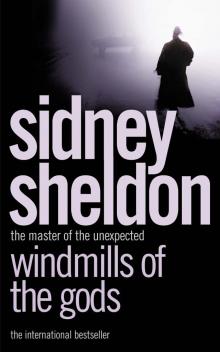 Windmills of the Gods
Windmills of the Gods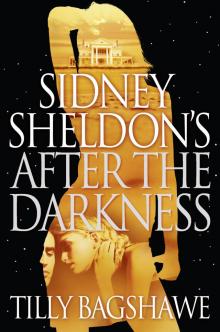 After the Darkness
After the Darkness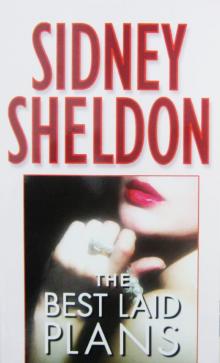 The Best Laid Plans
The Best Laid Plans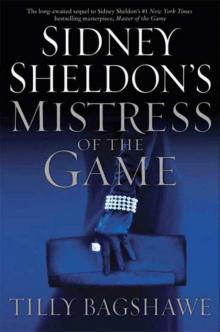 Mistress of the Game
Mistress of the Game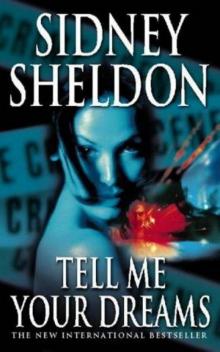 Tell Me Your Dreams
Tell Me Your Dreams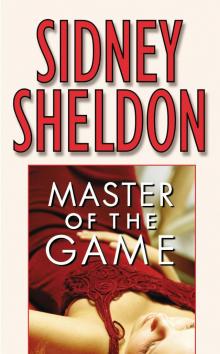 Master of the Game
Master of the Game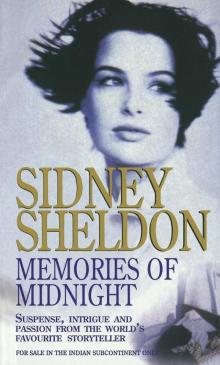 Memories of Midnight
Memories of Midnight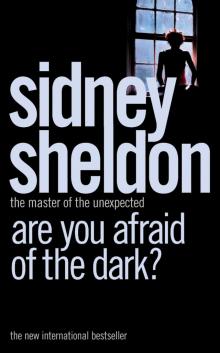 Are You Afraid of the Dark?
Are You Afraid of the Dark?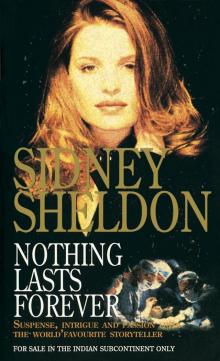 Nothing Lasts Forever
Nothing Lasts Forever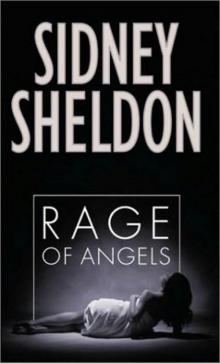 Rage of Angels
Rage of Angels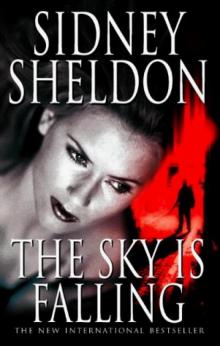 The Sky Is Falling
The Sky Is Falling The Sands of Time
The Sands of Time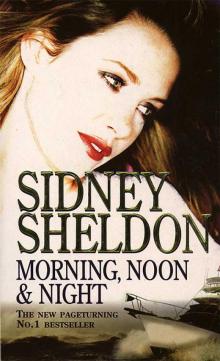 Morning, Noon and Night
Morning, Noon and Night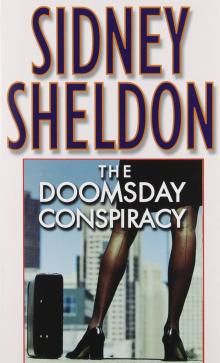 The Doomsday Conspiracy
The Doomsday Conspiracy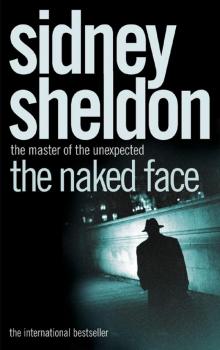 The Naked Face
The Naked Face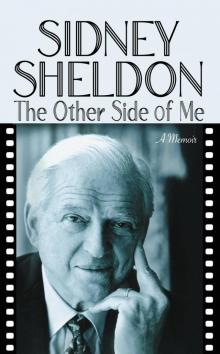 The Other Side of Me
The Other Side of Me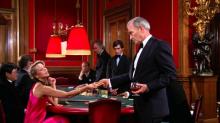 Bloodline
Bloodline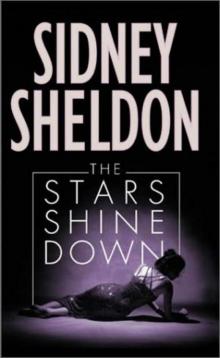 The Stars Shine Down
The Stars Shine Down The Other Side of Midnight
The Other Side of Midnight A Stranger in the Mirror
A Stranger in the Mirror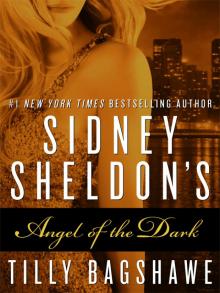 Sidney Sheldon's Angel of the Dark
Sidney Sheldon's Angel of the Dark Sidney Sheldon's the Tides of Memory
Sidney Sheldon's the Tides of Memory The Phoenix
The Phoenix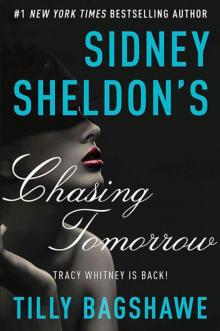 Sidney Sheldon's Chasing Tomorrow (Tracy Whitney)
Sidney Sheldon's Chasing Tomorrow (Tracy Whitney)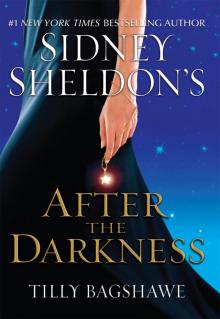 Sidney Sheldon's After the Darkness
Sidney Sheldon's After the Darkness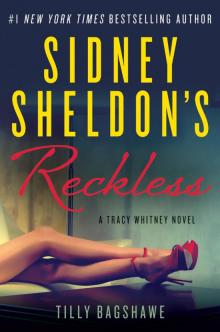 Sidney Sheldon's Reckless
Sidney Sheldon's Reckless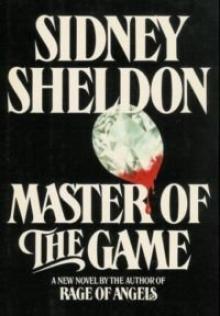 Master of the Game motg-1
Master of the Game motg-1 Sidney Sheldon's the Silent Widow
Sidney Sheldon's the Silent Widow Morning, Noon & Night
Morning, Noon & Night